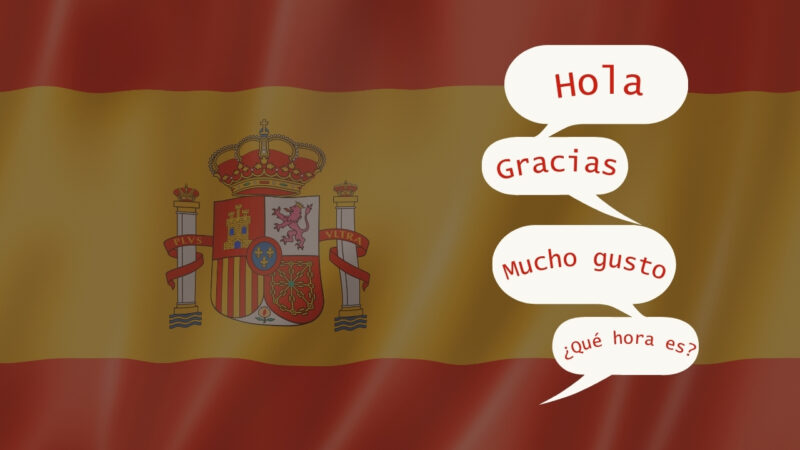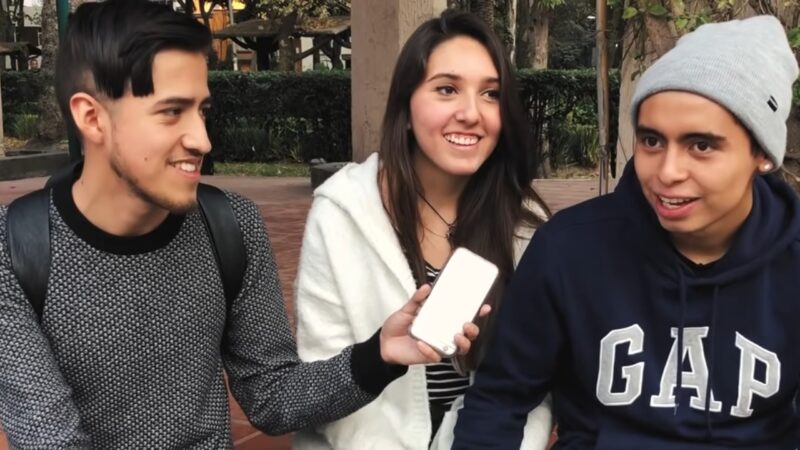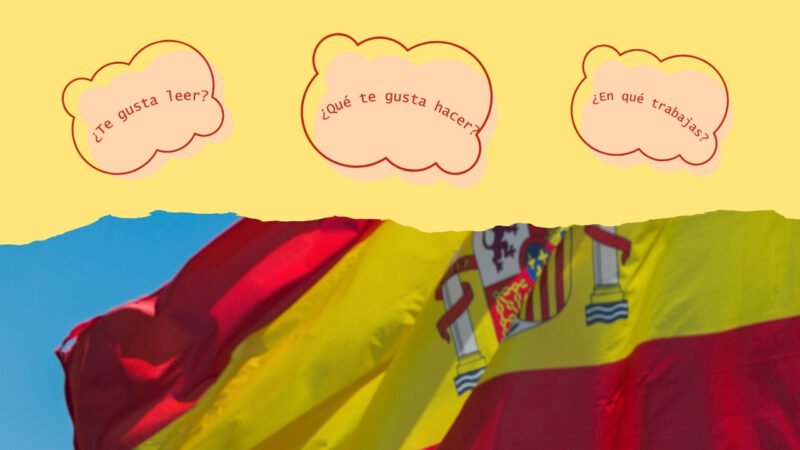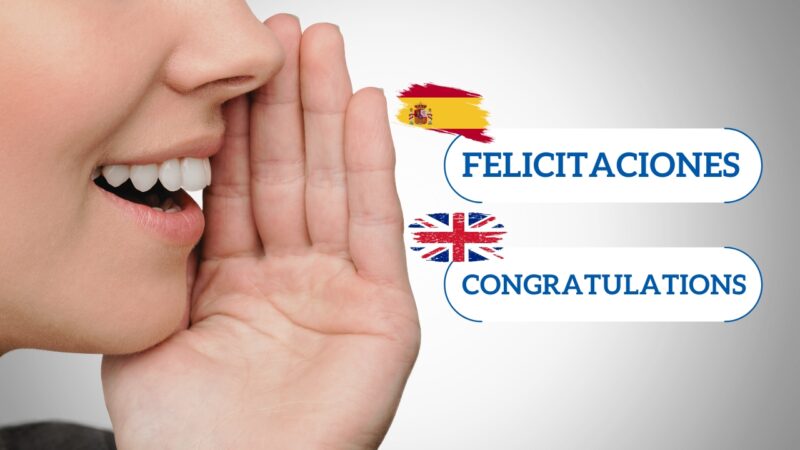Learning the most used Spanish phrases is incredibly straightforward, and the key is to practice them regularly.
These phrases are not just for navigating new places if you’ve moved abroad; they’re also great for getting to know the locals once you’re all settled in.
In this guide, we’ll cover over 100 basic Spanish phrases that are commonly used in Spain, giving you a solid foundation in this vibrant and expressive language.
By incorporating these Spanish phrases into your daily routine, you’ll soon be ready to explore some of the more humorous Spanish expressions and even some of the language’s more colorful curse words!
15 Most Basic Phrases

Here are 15 essential Spanish phrases that are great to know. If you’re focusing on the basics, make sure to remember these!
- Hola – “Hello”
- Me llamo… – “My name is…”
- ¿Y tú? – “And you?”
- Mucho gusto – “Nice to meet you”
- ¿Qué tal? – “How are you?”
- Nos vemos – “See you”
- Por favor – “Please”
- Gracias – “Thank you”
- De nada – “You’re welcome”
- Disculpa (informal “you”) / (formal “you”) – “Excuse me”
- Me gusta / No me gusta… – “I like / I don’t like…”
- ¿Cuánto cuesta? – “How much is this?”
- ¿Dónde está el baño? – “Where’s the bathroom?”
- ¿Qué hora es? – “What time is it?”
- Me puede ayudar, por favor – “Can you help me, please?” (formal “you”)
These phrases form the foundation for basic communication in Spanish, perfect for everyday interactions and essential needs.
To further enhance your beginner Spanish skills, practicing these phrases regularly will help build confidence and fluency in everyday conversations.
Day-to-Day Phrases
Here’s a little tip: Since everyone’s daily routine varies, take a moment to reflect on your activities and interactions. What phrases or words would best describe these moments for you?
Creating a personalized vocabulary list based on your own experiences can accelerate your Spanish learning journey, including incorporating terms related to books for learning the Spanish language.
Here are some phrases to kickstart conversations about your interests, professions, and hobbies, which are crucial when learning a new language. After all, sharing about yourself is a key part of getting to know others.
Phrases for Discussing Interests, Occupations, and Hobbies in Spanish

- ¿Qué te gusta hacer? – “What do you like to do?”
- Mi pasatiempo favorito es… – “My favorite hobby is…”
- ¿Cuáles son tus pasatiempos? – “What are your hobbies?”
- ¿Qué haces en tu tiempo libre? – “What do you do in your free time?”
- Me gusta / No me gusta… – “I like / I don’t like…”
- Me encanta… – “I love…”
- ¿Te gusta leer? – “Do you like to read?”
- ¿Qué música te gusta? – “What music do you like?”
- Mi favorito es… – “My favorite is…”
- Me gusta ir… – “I like going to…”
- ¿En qué trabajas? – “What do you do for work?”
- ¿Te gusta tu trabajo? – “Do you like your job?”
- Trabajo en… – “I work in/at…”
- Hasta luego – “See you later”
For example, you could say:
- Me Encanta el café. ¿Quieres ir a tomar una taza? (“I love coffee. Wanna go grab a cup?”)
- Trabajo en una escuela. Soy profesor. (“I work at a school. I’m a teacher.”)
Basic Questions

Here are some of the common questions that might come in handy whether you’re traveling or just engaging in conversation:
- ¿Cuánto cuesta? – “How much is this?”
- ¿Dónde está el baño? – “Where’s the bathroom?”
- ¿Qué hora es? – “What time is it?”
- ¿Pasa algo? – “Is something wrong?”
- ¿Sabes qué pasa? – “Do you know what’s happening?”
- ¿Es esto correcto? – “Is this right?”
- ¿Me he equivocado? – “Was I wrong?”
- ¿Me puede ayudar con esto? – “Can you help me with this?”
- ¿Puedes traerme … por favor? – “Can you bring me … please?”
- ¿Puedo entrar? – “Can I come in?”
- ¿Quieres tomar una copa? – “Want to grab a drink?”
- ¿A dónde deberíamos ir a comer? – “Where should we go to eat?”
- ¿Estás listo/a? – “Are you ready?”
And when it comes to expressing goodwill, congratulations, or simply engaging in social niceties, these phrases can be quite useful:
- ¡Cuánto tiempo sin verlo(a)! – “Long time no see!”
- ¡Feliz cumpleaños! – “Happy birthday!”
- ¡Buena suerte! – “Good luck!”
- ¡Alto! / ¡Detente! / ¡Deténgase! – “Stop!”
- ¡Salud! – “Cheers!”
- Que te mejores / Que se mejore – “Get well soon”
- Buen provecho – “Bon appetit”
- Cuídate / Cuídese – “Take care”
- Felicitaciones – “Congratulations”
- ¡Bien hecho! – “Well done!”
- ¡Genio! – “Genius!”
- Estupendo – “Stupendous” or “Amazing”
- Genial – “Great” or “Awesome”
- ¡Increíble! – “Incredible!” or “Impressive!”
I found myself using many of these expressions during my trip to Mexico in 2022!
Humorous Spanish Expressions and Idioms
Brighten up your conversations by weaving in some humorous Spanish phrases and idioms! When you drop one of these well-known expressions into your chat, your Spanish instantly sounds more authentic and lively.
- Ponte las pilas – Translates to “Put in your batteries,” akin to telling someone to perk up, snap to attention, or get moving. Perfect for nudging someone who’s lost in their own world.
- Papando moscas – “Catching flies” refers to daydreaming so intensely that you might as well have flies landing on you unnoticed. A vivid way to describe someone lost in thought.
- Comiendo moscas – “Eating flies” taps into the theme of flies to describe someone who’s rambling or can’t keep to the main point during a conversation.
- Buena onda – “Good wave” translates to good vibes, ideal for describing someone with a positive spirit or a pleasant situation.
- Me pica el bagre – “The catfish is biting me” creatively expresses intense hunger as if your stomach is nibbling at you like a hungry catfish.
- Hablando del rey de Roma – “Speaking of the king of Rome” parallels the English “speak of the devil,” used when someone shows up just as you’re talking about them.
- Meter la pata – “To put a paw in it” means to mess up or blunder, similar to the English “put your foot in your mouth.”
- Creerse la última coca-cola del desierto – To consider oneself as “the last Coca-Cola in the desert” implies thinking too highly of oneself.
- Tener la cola sucia – “To have a dirty tail” suggests sneaky behavior, akin to a fox getting into mischief.
- Se puso hasta las chanclas – “Put on his flip-flops” refers to someone getting overly drunk, akin to saying someone got wasted.
- Échale Ganas – “Insert desire” means to give it your all or show how much you want something.
- Mandar a alguien por un tubo – “Send someone through a tube” is a way of telling someone off or to “shove it.”
- Mala leche – “Bad milk” describes someone with malevolent intentions.
- Tirar la casa por la Ventana – “Throw the house out the window” encourages extravagant spending or going all out to celebrate, similar to “treat yo’ self.”
Polite Phrases in Spanish
- Por favor – “Please”
- Gracias – “Thank you”
- De nada – “You’re welcome”
- No hay de qué – “No problem”
- Disculpa – “Excuse me” (informal “you”)
- Disculpe – “Excuse me” (formal “you”)
- Lo siento – “I’m sorry”
Finally

Fantastic effort! That was a hefty chunk of information, but you’ve made it through.
Hopefully, you’ve snagged some useful phrases that’ll kickstart your Spanish-speaking journey.
Remember, learning a new language opens up a whole world of adventures and connections.
Each phrase you’ve mastered is a step toward more heartfelt conversations and better understanding.
So keep at it, stay curious, and before you know it, chatting in Spanish will feel like second nature.
I am Edward Quin, a teacher and part-time freelance writer specializing in Spanish and English. With a major in these languages, I have a deep grasp of their structures, cultural richness, and literary traditions. My passion for languages inspired me to become a high school teacher, where I motivate students to discover new cultures and languages.
Related Posts:
- 50 Everyday German Conversational Phrases You Must Learn
- 13 Traditional Food You Must Try When Visiting Spain…
- How to Order Beer at Oktoberfest in German? Every…
- Learn to Count in Spanish - Tips and Tricks on How…
- Introduction to Beginners Spanish - Learn, Speak, Thrive!
- 50 Basic Spanish Words to Learn for Beginners: Start Today!

